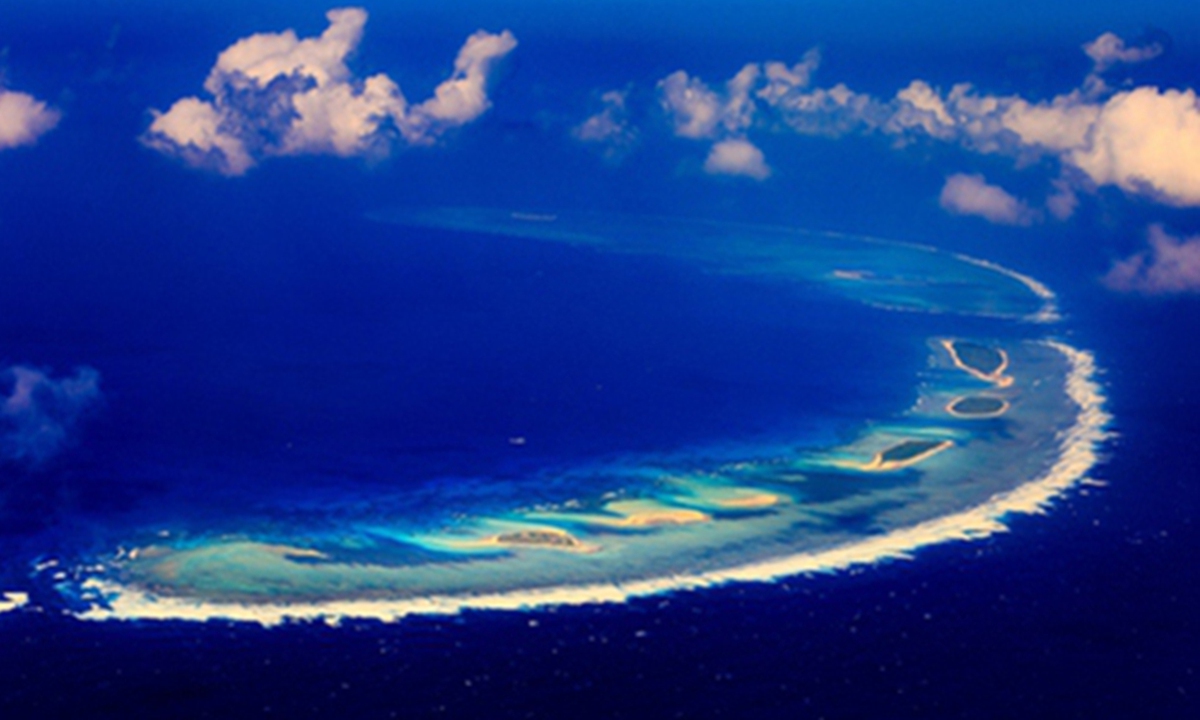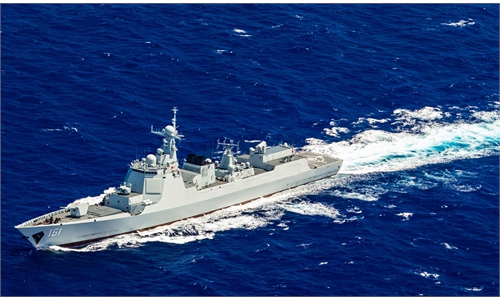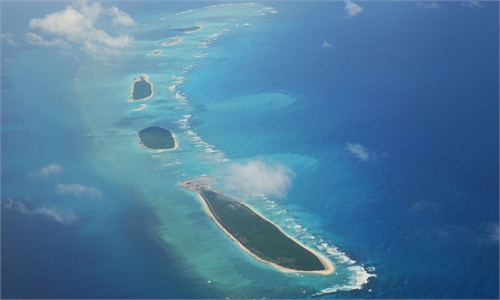
Xisha Islands in the South China Sea Photo: VCG
Chinese State Councilor and Defense Minister Wei Fenghe has concluded his visit to Malaysia, Indonesia, Brunei and the Philippines, as Chinese analysts said Sunday that paying visits to these Southeast Asian countries amid the COVID-19 pandemic proves the importance and solidity of China's ties with these nations.
From September 7-11, Wei visited the four ASEAN members meeting with their leaders, including Filipino President Rodrigo Duterte, Bruneian Sultan Hassanal Bolkiah and Malaysian Prime Minister Muhyiddin Yassin. The four countries expressed their willingness to enter into defense cooperation with China, according to China's Ministry of National Defense.
In the meetings with the leaders of these countries, the issue of the South China Sea was mentioned every time. Wei said at the meeting with Duterte that safeguarding the stability of the South China Sea is a "shared responsibility of the two sides."
Before Wei embarked on his tour, US Secretary of State Mike Pompeo on Thursday urged ASEAN countries to do more to pressure China on the South China Sea. "Don't just speak up, but act," Pompeo said at an online virtual meeting with the 10 ASEAN countries' foreign ministers.
However, Duterte stressed to Wei on Friday that the two countries must peacefully solve all disputes according to the UN Convention on the Law of the Sea (UNCLOS) and other relevant international mechanisms and push forward the execution of the Code of Conduct in the disputed region.
According to Malaysian media, Defense Minister Ismail Sabri Yaakob said Wei's visit provided a chance for both sides to discuss the dispute, and the stance he made to Wei is that the disputes should be resolved by diplomatic measures.
Hong Kong newspaper the South China Morning Post (SCMP) quoted former Malaysian deputy minister of defense Liew Chin Tong as saying that "no other region is of higher stake and more consequential to China's rise than maritime Southeast Asia in the context of heightened US-China tension."
Liew said that China must treat maritime Southeast Asian states as its top foreign policy priority as it is a region that is geographically close to China, and the states in the region are cautiously hedging between the US and China.
Beijing is seeking to balance US influence in the Asia-Pacific amid rising tensions in the South China Sea, said the SCMP report.
However, Li Haidong, a professor at the Institute of International Relations of the China Foreign Affairs University, told the Global Times that this is a Western-style interpretation as China's military diplomacy is not directed against any third party or other countries, and it is not interested in balancing the power of any country.
"China hopes to maintain peaceful and friendly relations with neighboring countries to ensure security, stability and prosperity in the region, rather than constant conflicts in the area," Li said.
Li believed that anything China does in Southeast Asia or the South China Sea will be seen by the US as directing against itself, as the country has great influence and destructive power in the region and also the US has clearly defined China as a strategic competitor.
China must strengthen communication and cooperation with Southeast Asian countries, which is both necessary and urgent, as the US has been increasingly forming alliances and stirring up disputes in the region, Li said.
"The face-to-face communication as the epidemic is under control shows the sincerity of the two sides to build a high degree of mutual trust and it is also conducive to in-depth and productive exchanges between the leaders of the visiting countries," he noted.
Since China's national defense is closely connected with its diplomacy, Wei's visit is not only to deepen mutual trust in the defense field with China's Southeast Asian neighbors, but also to strengthen close diplomatic ties and build a mutually coordinated relationship on security in the region, Li said.
The countries in the region have their own concerns based on their interests, but they all hope the region will remain stable and peaceful. This is same as China's claim and interests in the region of the South China Sea, Li noted.


